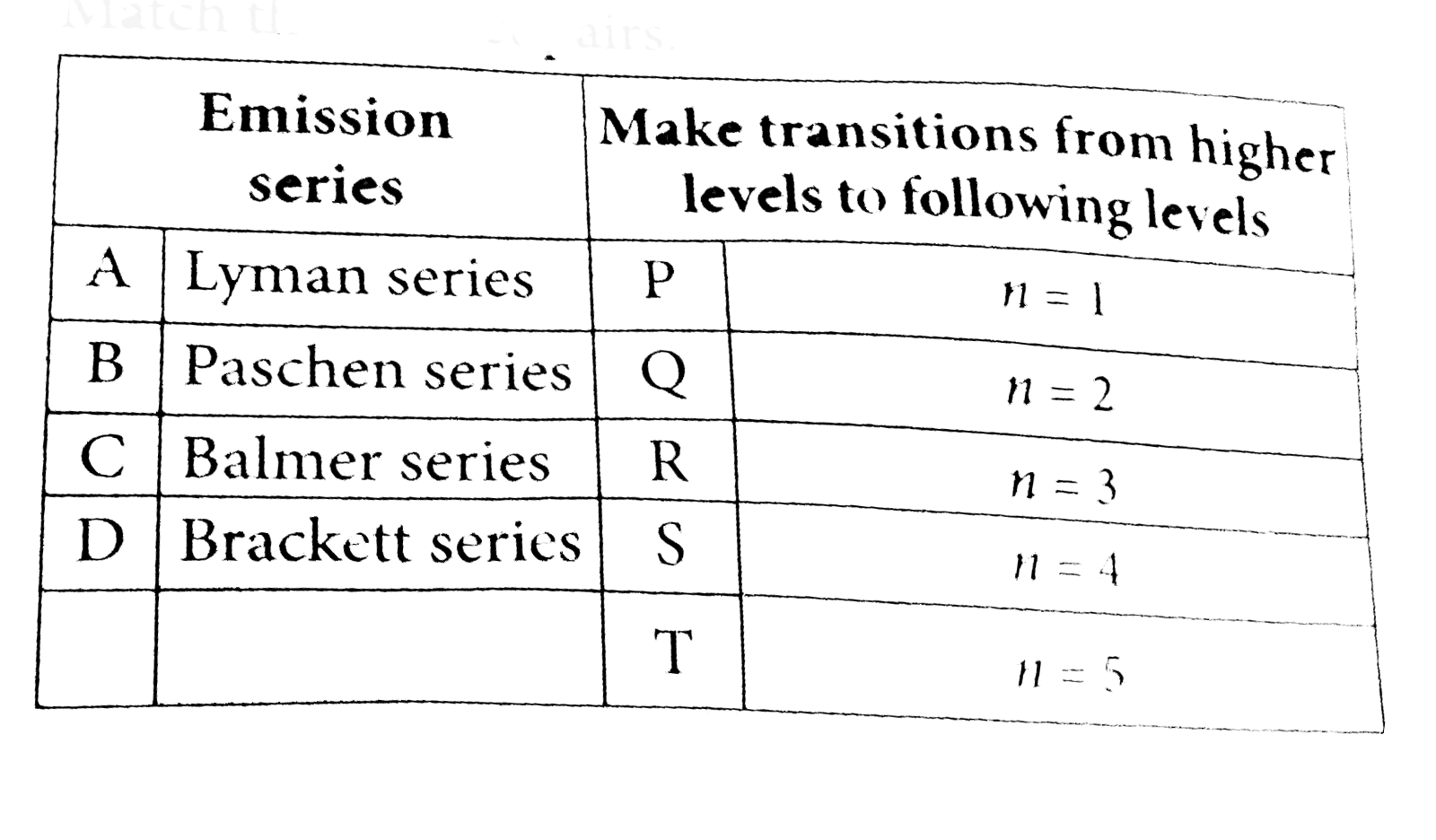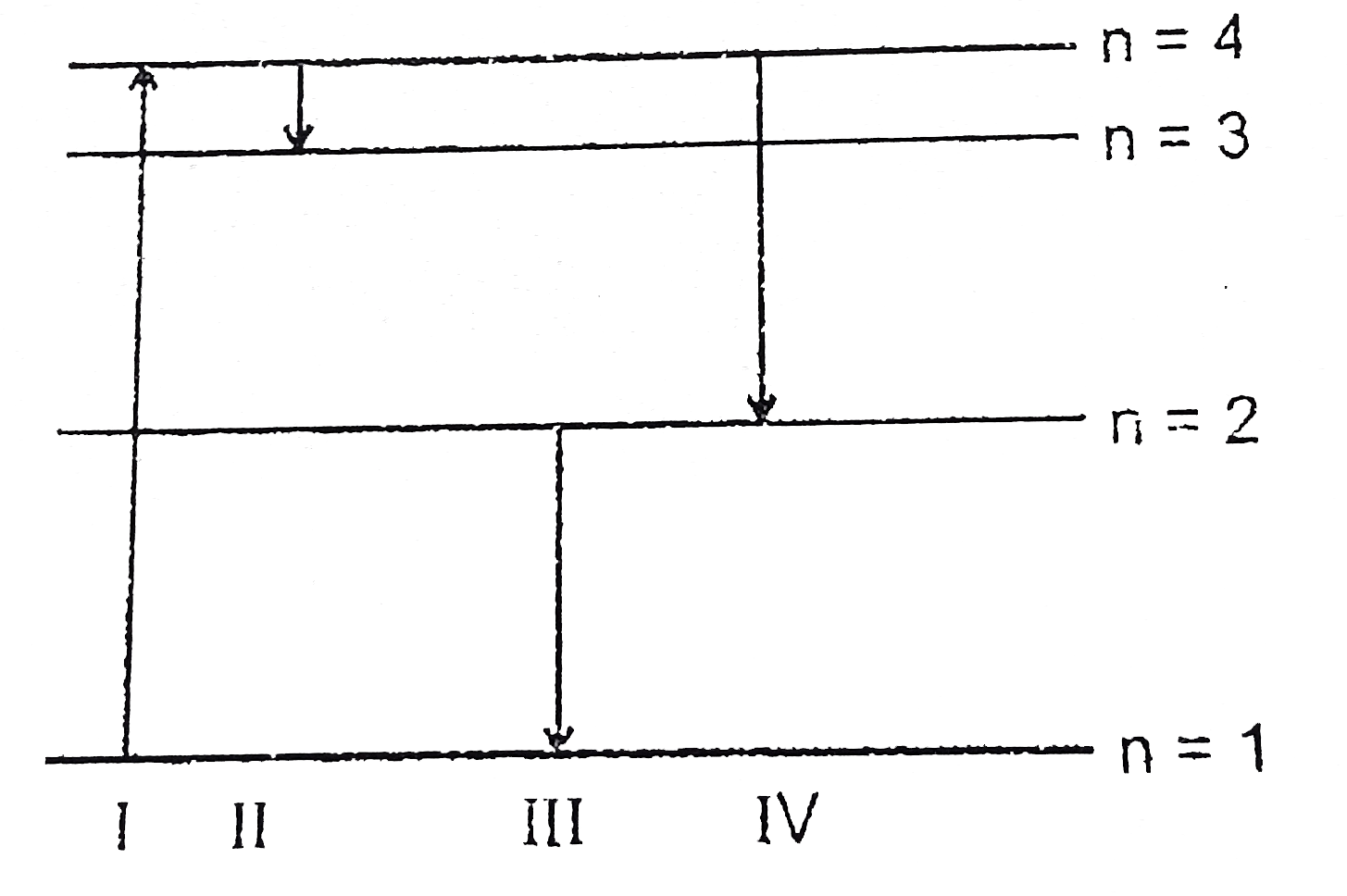Higher order thinking skills from MTG PHYSICS (ENGLISH) ATOMS for Class 12
| Class 12 | PHYSICS |
| Chapter | ATOMS |
| MTG PHYSICS (ENGLISH) | Higher order thinking skills |
| Medium | English |
| Academic Year | 2023-2024 |
Question 54
Suppose an electron is attracted toward the origin by a forcekr where k is a constant and r is the distance of the electron from the origin .By applying Bohr model to this system the radius of the nth orbital of the electron is found to be rn and the kinetic energy of the electron to be Tn , Then which of the following is true ? View SolutionQuestion 89
The electron in hydrogen atom makes a transition n1→n2 where n1 and n2 are the principal quantum number of two states. Assuming the Bohr model to be valid, the time period of the electron in the initial state is eight times that in the final state. The possible value of n1 and n2 are:View SolutionQuestion 101
Deutrium was discovered in 1932 by Harold Urey by measuring the small change in wavelength for a particular transition in .1H and .2H. This is because, the wavelength of transition depend to a certain extent on the nuclear mass. If nuclear motion is taken into account, then the electrons and nucleus revolve around their common centre of mass.
Such a system is equivalent to a single particle with a reduced mass μ, revolving around the nucleus at a distance equal to the electron -nucleus separation. Here μ=meM/(me+M), where M is the nuclear mass and me is the electronic mass. Estimate the percentage difference in wavelength for the 1st line of the Lyman series in .1H and .2H. (mass of .1H nucleus is 1.6725×10−27 kg, mass of .2H nucleus is 3.3374×10−27 kg, Mass of electron =9.109×10−31kg.)View SolutionQuestion 102
The inverse sequare law in electrostatic is |F|=e2(4πε0)r2 for the force between an electron and a proton. The (1r) dependence of |F| can be understood in quantum theo ry as being due to the fact that the particle of light (photon) is massless. If photons had a mass mp, force would be modified to |F|=e2(4πε0)π2[1r2+λr] .exp(−λr) where λ=mpch and h=h2π. Estimate the change in the gound state energy of a H-atom if mp were 10−6 times the mass of the electron. View SolutionQuestion 103
The Bohr model for the H-atom relies on the Coulomb's law of electrostatics . Coulomb's law has not directly been varified for very short distances of the order of angstroms. Suppos-ing Coulomb's law between two oppsite charge +q1,−q2 is modified to ∣∣→F∣∣=q1q2(4πε0)r21r2,r≥R0
=q1q2(4πε0)r21R20(R0r)ε,r≤R0
Calculate in such a case , the ground state enenergy of H-atom , if ε=0.1,R0=1ÅView SolutionQuestion 104
In the Auger process as atom makes a transition to a lower state without emitting a photon. The excess energy is transferred to an outer electron which may be ejected by the atom (this is called an Auger electron). Assuming the nucleus to be massive, calculate the kinetic energy of an n=4 Auger electron emitted by chromium by absorbing the energy from a n=2 to n=1 transition . View SolutionQuestion 106
The ground state energy of an atom is −13.6eV. The photon emitted during the transition of electron from n=3 to n=1 state, is incidenet on a photosensitive material of unknown work function. The photoelectrons are emitted from the materials with a maximum kinetic energy of 9 eV. the threshold wavelength of the material used is View SolutionQuestion 110
The binding to energy of a H-atom, considering and electron moving around a fixed nuclei (proton) , is
B=−me48n2ε20h2 ( m=electron mass)
In one decides to work in a frame of reference where the electon is at rest, teh proton would be moving around it. by similar arguments, the binding energy would be
B=−Me48n2ε20h2 ( M=proton mass )
The last expression is not, correct, because View Solution


